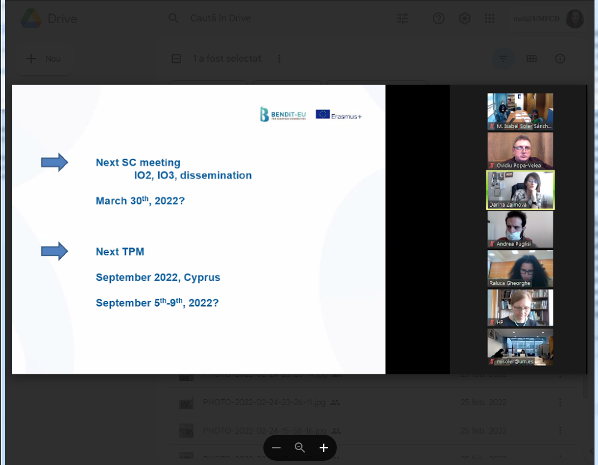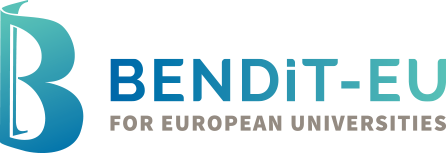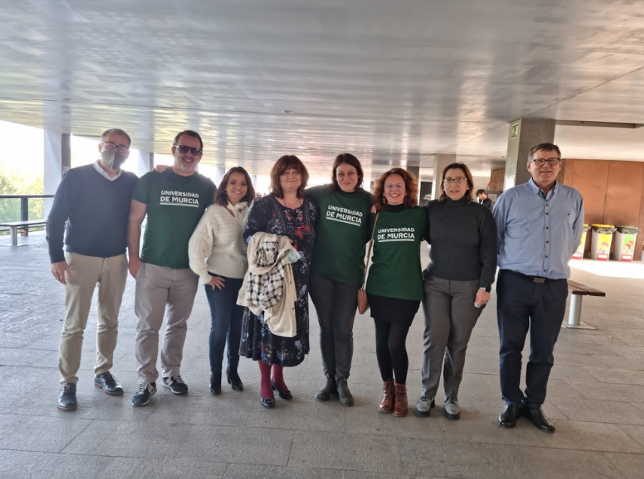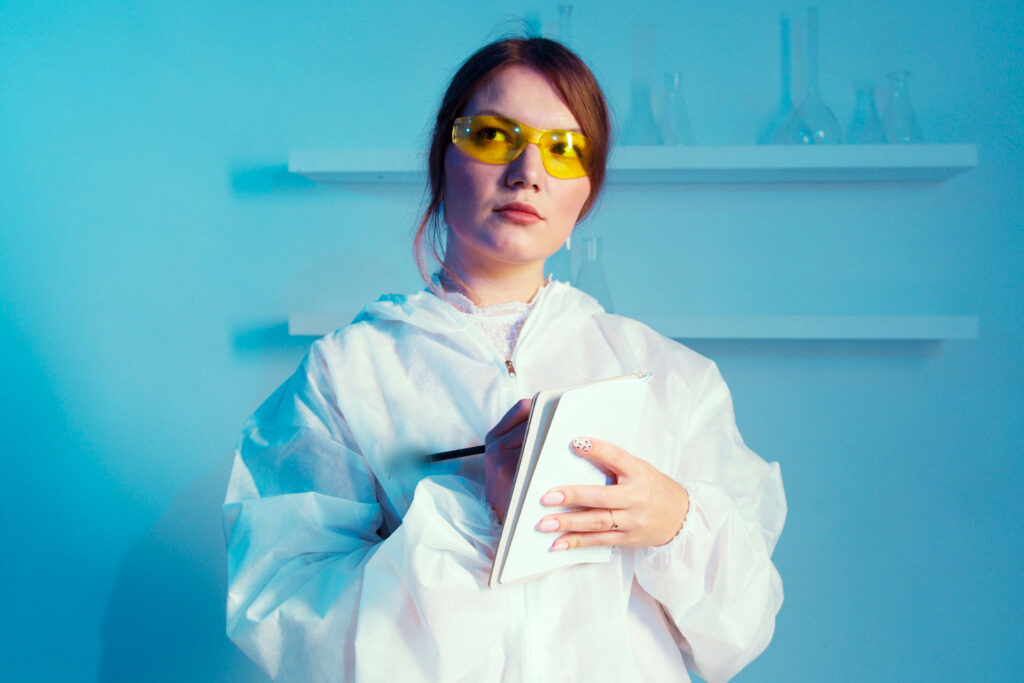The third transnational meeting (TPM2) took place on February 24th-25th, 2022 in a hybrid format, and was organized by the University of Murcia, Spain. The aim of the meeting was to present an update about the BENDiT web Platform (BWP) and to discuss, according to the timeline, the next steps for finishing IO2, as well as to plan the next important steps in developing IO3 – the curriculum for students and the Learning-Teaching-Training (LTT) activities.
The agenda of the first day included a presentation of the project’s overview, provided by CDUMP, which was focused on what has been achieved so far and what still needs to be conducted within the Project’s activities. University of Nicosia, the leading Partner of IO3, has offered a detailed presentation about the content of the 5-day curriculum and the division of work between Partners. University of Nicosia proposed that every Partner should select a day of the curriculum and work on the content until an agreed deadline. The content of the curriculum was divided into 2 modules, aiming to offer a theoretical overview of the academic burnout and to provide practical ideas of managing it. Each day’s outline was described in terms of scope, learning outcomes, training time, training materials, and for some days, warm-up activities and homework. University of Nicosia also mentioned that Trakia University will adapt the content of the curriculum for international students.
The TPM program continued with a IO2 session, offered by VITECO, in which several updates about the platform have been presented (e.g., a designed header menu of the Homepage, or the possibility provided to the users to decide whether to delete their accounts). In addition, VITECO has mentioned several phases critical for the later development of the platform (e.g., filling the template for translations). The National School of Public Health presented the methodology of testing the platform on 25 students per Partner University, as well as the feedback questionnaire of the students. Lusofona University (COFAC) also contributed to VITECO’s presentation, by suggesting several optimization strategies for the platform. The last presentation was provided by CDUMP and covered important updates, in terms of deadlines about the Interim report and reminders about the financial issues and internal procedures. The second day of the TPM started with a follow-up of the first TPM day and the agreement of several deadlines for the upcoming activities. A series of changes in the timeline have been suggested by the Partners who will organize the Learning-Teaching-Training activities. It was concluded that C1 should take place in June, while C2, C3 and C4 could be run in September. TPM3 should take place in October. The C1 presentation was provided by the University of Murcia and consisted of important information about the Train-the-Trainer guide. They also offered information about how they will organize the event and provided a valuable content example in what concerns the practical activities for module 2.
Lusofona University (COFAC) also provided some information about C2, C3 and C4, in terms of logistics, what would be the most appropriate recruitment and selection methods for the participants, and the impact indicators. Trakia University presented a brief situation of the project’s dissemination results. Regarding the evaluation, University of Murcia has sent an email to all participants, containing questionnaires about the TPM and Partnership quality. According to the evaluation report of the Partnership quality, all participants agreed with the fact that the project’s activities were delivered in due time, however, some improvements could be implemented, in terms of the Partners’ responsiveness and efficiency. In what concerns the evaluation of the TPM itself, most of the participants were satisfied, but several aspects still could be improved (e.g., the duration and the timetable of the meeting).












